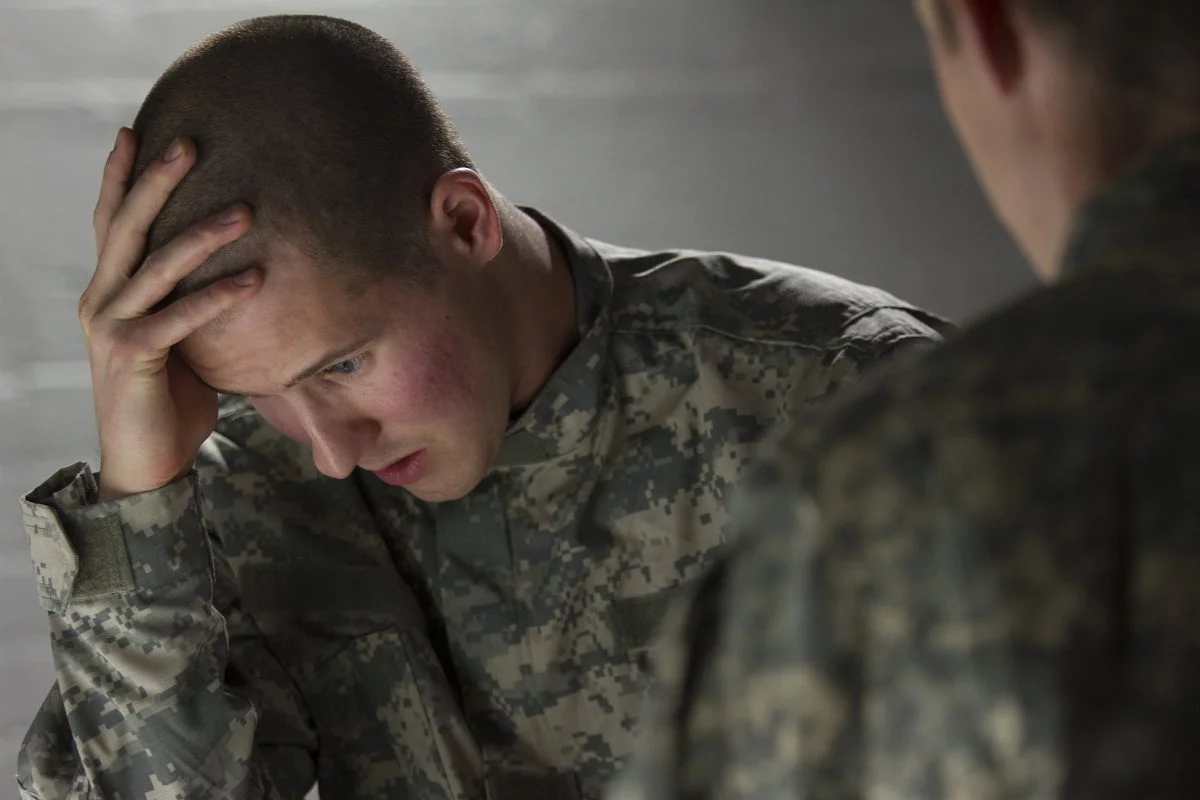7 Reasons To Seek Addiction Treatment
Substance use disorder, which is more colloquially known as drug addiction, is a serious mental...
toll free: 844.955.3042
local tel: 561.464.6505
fax: 561.450.6637
info@recointensive.com
RECO Intensive
140 NE 4th Avenue
Delray Beach, FL 33483
Drinking and alcohol use in the military are nothing new. Drinking has been part of being in the military for decades. The stresses of combat, being away from friends and family, and other challenges can often lead to young military personnel looking for a way to destress, unwind, and find relief.
Sadly, this is often in the form of alcohol. For many of these young men and young women, this is the first time they are away from home. They are apart from family and friends that provide support and encouragement.
Their familiar surroundings are not there. Rather, they are meeting a lot of new people, getting used to the military structure, the chain of command, adjusting to sleeping in barracks-style housing, and new schedules that include getting up early.
Another issue that occurs in the military is binge-drinking. This type of drinking is consuming many alcoholic beverages in a short period. Since most military personnel only have set hours off and limited leave, it is no wonder that they want to drink as much as they can whenever the opportunity arises.
Frequent regular drinking and binge-drinking can lead to dependence on alcohol. Eventually, alcoholism and addiction can take root. This problem does not go away once the person retires from the military, either.
Even if a veteran is not an alcoholic when they leave the military, they have been surrounded by this sort of accepted behavior where it is okay to drink alcohol and binge-drink. They have seen their fellow military squadron members participate. As a result, it is easy for one’s perceptions of what is acceptable when it comes to drinking to alter and change from life in the service.
Now that they are back home, they are having to adjust and reintegrate into civilian life. They may struggle with relationships with family and friends. They can find it hard to find a job and work alongside others because they are used to have a set structure in place. When this structure is no longer there, they can feel lost and alone.
To help adjust to their new life, many veterans return to drinking, which can eventually lead to veteran alcohol abuse. Some also turn to different types of drugs and illegal substances when drinking no longer achieves the desired effects.
Another common issue that veterans face is dealing with post-traumatic stress disorder (PTSD). It is not uncommon for military personnel to see active combat and be placed in the middle of war zones, active hot spots, and so on. They may have seen their closest military friends, who are much like family, die in front of them.
Combined with these stresses, it is no wonder that military personnel turn to alcohol because it can help numb their feelings, alleviate their stress, and help them sleep at night. When a veteran is dealing with PTSD and alcoholism, both conditions must be treated at a veteran alcohol rehab center.


To find out why alcohol use in the military can lead to addiction for service members, you have to take a look at how society and our culture view our military personnel. Many new enlistees into the military are in their teens or early twenties. Some are freshly graduated from high school. For them, it can be quite a challenge to adjust to a new lifestyle away from home.
Since alcohol is readily available in the military, they can have access to alcohol even when they are under the drinking age. While our military expects personnel to stick to the drinking age of 21, this does not always happen. Furthermore, if personnel are stationed overseas, in many foreign countries, the legal drinking age can be 18.
Now, if you toss in peer pressure from fellow squadron members, many of these young people will give in because they are still adjusting to their new lifestyle and want to fit in. So, they will take a drink when offered one.
It is not just in the military where service members can develop problems with alcohol addiction. Many restaurants, bars, and nightclubs all offer free or discounted drinks to active military personnel. In some cases, these establishments do not even check to verify the service member is old enough to drink alcohol.
Additionally, when you place young men and women in high-stress combat situations like in Iraq and Afghanistan, it can be rather scary because many service members have never faced this type of situation before. Even though they have trained for it, it is completely different when it is reality.
Since there is easy access to alcohol, it becomes the preferred substance of abuse to adjust, cope, fit in, and deal with the stresses of active duty.
A veteran alcohol rehab center can help military personnel by offering custom-tailored treatment plans that address the needs and objectives of the individual. For example, some veterans may have co-occurring PTSD and alcohol addiction, whereas another service member may be struggling with both drug and alcohol abuse.
Part of an effective treatment program, various therapies, counseling, training, and education are essential, including:
It is equally important to remember that what treatment plan works for one person may not be as effective for another. The treatment center must be willing to create custom treatment programs for everyone and not take a “cookie-cutter” approach.
The overall objective of a veteran alcohol rehab center is to provide a caring, supportive, and safe environment for the veteran to get clean and sober. Whether the veteran chooses an inpatient or outpatient program, part of their treatment should include aftercare as well.
Unfortunately, not all rehab centers provide aftercare. Aftercare is where the veteran continues to receive support through various therapies, counseling, activities, etc., that help them reintegrate into civilian life and avoid relapsing into their former addictive tendencies.


For friends and family of active military personnel and veterans, it can be hard to watch your loved one’s struggle with their addiction to alcohol or drugs. Even though you might want to stage an intervention or make demands that the person goes to rehab, these things are not always the best solution.
The problem with interventions, unless they are led by a trained rehab specialist, is that the addict can feel attacked. This can further push them in the other direction, where they will distance themselves even more from friends and family and continue to abuse their substance of choice.
The problem with demanding a loved one go to rehab or else is that it is an ultimatum. Sometimes, the addict will agree and start a program, only to return to using as soon as they can. Other times, their addiction has such a hold on them it is more important than their spouse, children, and other loved ones.
What you can do is learn more about addiction, how it is affecting your loved ones, and be there for them when they are ready to take those first steps to get sober. For rehab to be successful, addicts must want to actively participate in their recovery to become clean and sober. Otherwise, rehab does not always work.
For further information about veteran alcohol abuse, veteran alcoholism statistics, or our veteran alcohol rehab center treatment program, please feel free to contact RECO Intensive at 561-501-2439 today! We offer customized treatment plans to fit the needs of the veteran, as well as can treat co-occurring disorders like PTSD and alcoholism.